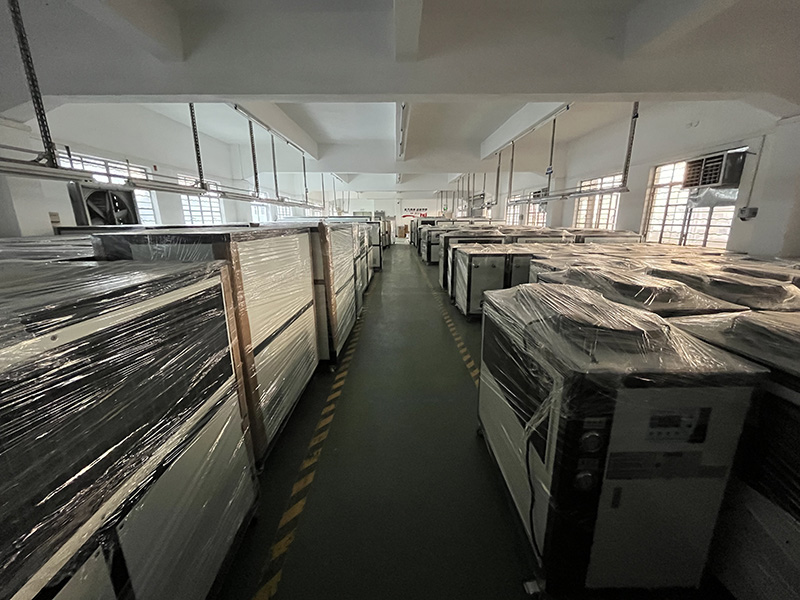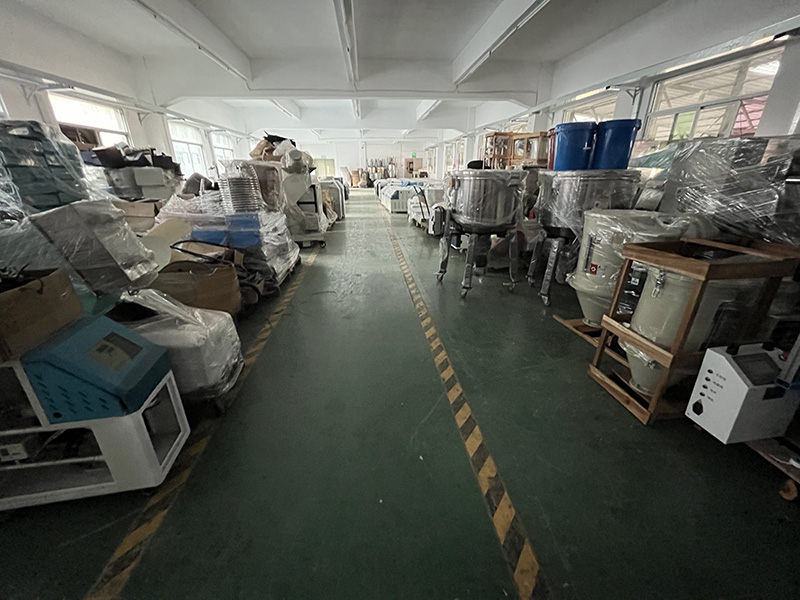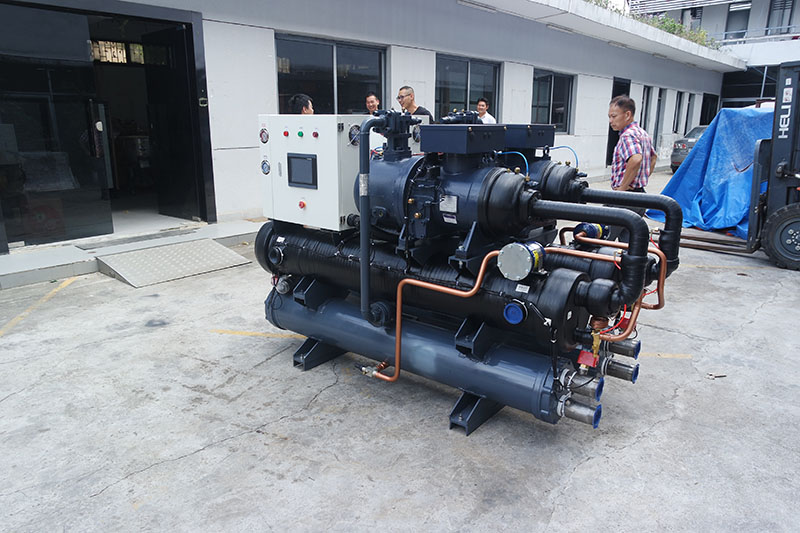In the realm of industrial operations, maintaining precise temperature control is crucial for ensuring the efficiency, longevity, and quality of various processes. Industrial chillers play a pivotal role in this regard, providing reliable cooling solutions across a wide range of applications. However, not all chillers are created equal, and understanding the different types available is essential for making an informed decision when selecting the right chiller for your specific needs. This article will delve into the diverse types of industrial chillers, exploring their unique features, advantages, and ideal applications.
Air-Cooled Chillers: Versatile and Convenient

Air-cooled chillers are one of the most common types of industrial chillers, renowned for their simplicity, versatility, and ease of installation. These chillers utilize ambient air to dissipate heat, eliminating the need for a complex water cooling system. Instead, they feature a fan or blower that circulates air over a condenser coil, transferring heat from the refrigerant to the surrounding environment. This makes air-cooled chillers particularly well-suited for applications where access to a water source is limited or where water conservation is a priority.
One of the key advantages of air-cooled chillers is their flexibility in terms of installation. They can be installed indoors or outdoors, making them suitable for a variety of industrial settings. Additionally, air-cooled chillers are generally more compact and lightweight than their water-cooled counterparts, making them easier to transport and install. This makes them an ideal choice for small to medium-sized industrial facilities or for applications where space is at a premium.
Another benefit of air-cooled chillers is their low maintenance requirements. Since they do not rely on a water cooling system, there is no need to worry about issues such as water treatment, scaling, or corrosion. This can significantly reduce maintenance costs and downtime, making air-cooled chillers a cost-effective cooling solution for many industrial applications.
However, it's important to note that air-cooled chillers are generally less energy-efficient than water-cooled chillers. This is because they rely on ambient air to dissipate heat, which can be less effective than using water as a cooling medium. Additionally, air-cooled chillers can be noisy, particularly when operating at high capacities. This may be a consideration for applications where noise levels need to be minimized.
Water-Cooled Chillers: High-Efficiency and High-Capacity

Water-cooled chillers, on the other hand, are designed for applications that require high cooling capacities and maximum energy efficiency. These chillers use water as a cooling medium to transfer heat from the refrigerant to the environment, typically through a cooling tower or a closed-loop water system. The water is circulated through the condenser coil, absorbing heat from the refrigerant and carrying it away to be dissipated.
One of the primary advantages of water-cooled chillers is their superior energy efficiency. Since water has a higher heat capacity than air, it can absorb and transfer more heat per unit volume, resulting in more efficient cooling. This makes water-cooled chillers particularly well-suited for large-scale industrial applications that require continuous cooling at high capacities.
Another benefit of water-cooled chillers is their ability to operate in a wider range of ambient temperatures. Unlike air-cooled chillers, which can be affected by high ambient temperatures, water-cooled chillers can maintain consistent cooling performance even in hot and humid environments. This makes them an ideal choice for applications in industries such as manufacturing, data centers, and healthcare facilities, where reliable cooling is essential regardless of the weather conditions.
However, water-cooled chillers do require a more complex installation and maintenance setup compared to air-cooled chillers. They require a dedicated water supply, a cooling tower or closed-loop water system, and regular water treatment to prevent scaling, corrosion, and biological growth. This can increase the initial investment and ongoing maintenance costs associated with water-cooled chillers. Additionally, water-cooled chillers are typically larger and heavier than air-cooled chillers, which may limit their installation options in some facilities.
Screw Chillers: Robust and Reliable

Screw chillers are a type of industrial chiller that utilizes a screw compressor to compress the refrigerant and generate cooling. These chillers are known for their high efficiency, reliability, and ability to handle large cooling capacities. Screw compressors consist of two intermeshing rotors that compress the refrigerant gas as it passes through, increasing its pressure and temperature. The compressed refrigerant is then cooled in the condenser and expanded in the evaporator, absorbing heat from the process or application.
One of the key advantages of screw chillers is their variable capacity control. Unlike reciprocating compressors, which operate at fixed capacities, screw compressors can adjust their capacity to match the cooling load requirements of the application. This allows screw chillers to operate more efficiently, reducing energy consumption and operating costs. Additionally, screw chillers are generally more reliable and have a longer lifespan than other types of compressors, making them a popular choice for industrial applications that require continuous operation.
Another benefit of screw chillers is their compact size and low noise levels. Despite their high cooling capacities, screw chillers are relatively small and lightweight compared to other types of industrial chillers. This makes them easier to install and maintain, even in limited spaces. Additionally, screw compressors operate quietly, making them suitable for applications where noise levels need to be minimized.
However, screw chillers can be more expensive than other types of industrial chillers, particularly for smaller cooling capacities. Additionally, they require regular maintenance and servicing to ensure optimal performance and reliability. This includes lubricating the compressor, replacing the oil filter, and checking the refrigerant levels.
Shell and Tube Chillers: Efficient Heat Transfer
Shell and tube chillers are a type of industrial chiller that consists of a cylindrical shell containing a bundle of tubes. The refrigerant flows through the tubes, while the cooling water or process fluid flows over the outside of the tubes. Heat is transferred from the refrigerant to the cooling water or process fluid through the walls of the tubes, providing efficient cooling.
One of the key advantages of shell and tube chillers is their high heat transfer efficiency. The large surface area of the tubes allows for maximum heat transfer between the refrigerant and the cooling water or process fluid, resulting in efficient cooling performance. Additionally, shell and tube chillers are relatively easy to clean and maintain, as the tubes can be removed for inspection and cleaning.
Another benefit of shell and tube chillers is their versatility. They can be used with a variety of refrigerants and cooling fluids, making them suitable for a wide range of industrial applications. Additionally, shell and tube chillers can be customized to meet the specific requirements of the application, such as the size of the chiller, the type of refrigerant, and the cooling capacity.
However, shell and tube chillers can be more expensive than other types of industrial chillers, particularly for smaller cooling capacities. Additionally, they require a larger footprint and more space for installation compared to other types of chillers. This may be a consideration for applications where space is at a premium.
In conclusion, understanding the different types of industrial chillers is essential for selecting the right chiller for your specific needs. Each type of chiller has its own unique features, advantages, and ideal applications, and choosing the right chiller can have a significant impact on the efficiency, reliability, and cost-effectiveness of your industrial operations. By considering factors such as cooling capacity, energy efficiency, installation requirements, and maintenance costs, you can make an informed decision and select the chiller that best meets your needs.


